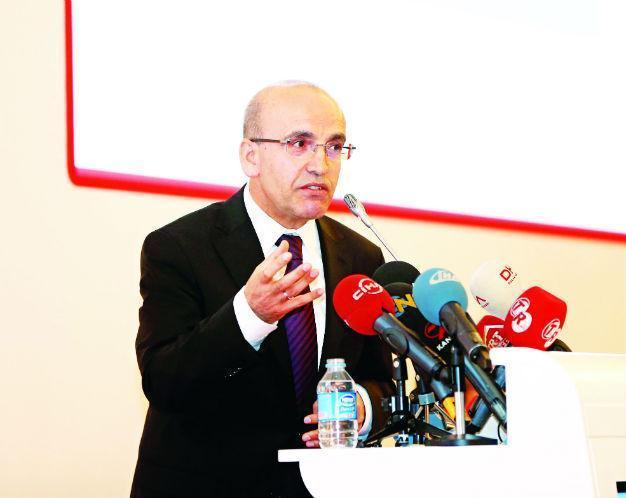Turkey needs to be more predictable, transparent to attract investment: Turkish Deputy PM Şimşek

A more predictable and transparent Turkey will succeed in luring more foreign investors, according to Deputy Prime Minister Mehmet Şimşek, responsible for economic issues in the Turkish government.
“Turkey needs to compete for capital and investment in the world. That won’t happen just by saying it. We need to make Turkey attractive. We need to make Turkey predictable,” Şimşek said, speaking at the 19th Eurasia Economic Summit held by the Marmara Group Foundation in Istanbul on April 6. “There is plenty of money and capital in the world and places to invest [this money and capital] are being sought,” Şimşek added.
Stating that they would make a major effort to enhance Turkey’s investment environment, Şimşek said a “significant” reform study concerning the aforementioned subject is being worked on and will be brought to parliament.
“Why shouldn’t 200 or 300,000 firms with global capital operate in Turkey? This is the reason why we will work harder,” Şimşek said, adding that the number of businesses with international capital rose from 5,000 to 47,000.
Stressing the significance of transparency and a state of law, Şimşek said the rise in the quality of institutions is “critical” and that currently they are not at the level that they “wish to be.”
Şimşek noted that in Turkey, they have to enhance corporate capacity and quality.
Mentioning the importance of judicial reforms, Şimşek said that in order to pave the way for the business community, rulings should be hastened.
A study to improve the country’s investment environment will soon be submitted to parliament, he said.
Deputy PM Şimşek also said some $500 billion leaked from emerging economies, including Turkey, in 2015, posturing that the trend will not end this year.
“Last year, more than half a trillion dollars of cash and capital exited developing economies such as Turkey, Brazil, South Africa and Russia,” Şimşek said.
In late February, ministers of G-20 member countries discussed ways to reverse the global slow growth trend and that since then, markets had shown relative stability, he said. But, he added, structural reforms are still needed to find sustainable solutions to the problem.
Global economic growth has fallen to 3 percent from 5 percent before the crisis, he noted.
“Both the performance and the potential growth of the global economy is falling,” Şimşek said.
The International Monetary Fund (IMF) points at a recovery in its projections but the fund has repeatedly cut its growth predictions in recent years.
“To take the [global] growth rate back to around 5 percent, the pre-crisis level, a serious effort for reform and an investment thrust is needed. This is where the problem lies,” Şimşek said.
Divergence in monetary policies is causing volatilities and fluctuations in global markets, he also added.
 A more predictable and transparent Turkey will succeed in luring more foreign investors, according to Deputy Prime Minister Mehmet Şimşek, responsible for economic issues in the Turkish government.
A more predictable and transparent Turkey will succeed in luring more foreign investors, according to Deputy Prime Minister Mehmet Şimşek, responsible for economic issues in the Turkish government.